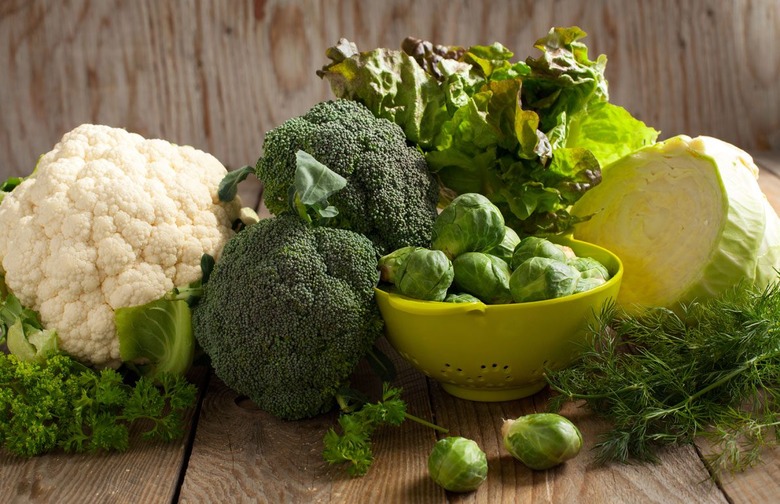The Best Tips For Losing Weight After Pregnancy
We may receive a commission on purchases made from links.
It's superhuman (not to mention incredibly irritating) the way some celebrities manage to shed their pregnancy weight and are strutting around in their size zeros merely weeks after having a baby. But for the majority of new mothers, that's simply not a practical or realistic expectation. "Forget about the celebrity approach of jumping back into the skinny jeans two weeks after your delivery," says interventional cardiologist Dr. Mike Fenster, author of the recently released The Fallacy of the Calorie. "While the celebrities surrounded by personal chefs, nannies, and trainers may be dropping the pounds quickly, they may not be pursuing the most healthful course. For the first six weeks postpartum, focus on eating a healthy diet. Most women following delivery are sleep-deprived, physically fatigued, and emotionally exhausted. Use the six-week recovery time to prepare yourself mentally, emotionally, and physically for a slow, steady, and successful climb to the summit."
Click here for The Best Tips for Losing Pregnancy Weight (Slideshow)
That said, it's very important for women to eventually lose the excess pounds gained during pregnancy. The longer the extra weight remains, the more at risk they are of becoming overweight or obese, and of developing other medical issues such as diabetes, elevated blood pressure, and heart disease. Studies have shown that the best way to lose the weight is gradually through a combination of healthy eating, exercise, and breastfeeding. "Losing the baby weight may take upwards of a year, depending upon how much you have gained during pregnancy," says Fenster. "A reasonable, successful program should aim for a reduction of at most one to two pounds per week."
According to Fenster, a wholesome approach to food, focusing on the quality of the comestibles and not the quantity (or caloric value), should be the emphasis for new moms. "A healthful diet is extremely important all the way through the 'fourth trimester,' which are the three months following birth, because your body needs good nutrition for the growth of the baby," explains Fenster.
"This is especially true for any nursing mothers," Fenster goes on to explain. "Your diet affects the quality of the breast milk, whereas the quantity is based on how much you nurse. Adequate nutrition is so important for the newborn during these formative first months that the American Heart Association recommends an extended period of breastfeeding because of its association with favorable lipid profiles and reduced cardiovascular risk [for the baby] all the way into adulthood."
It is also important to note that breast-feeding is one of the most effective ways to lose weight post-pregnancy, as the extra calories are used to feed the infant.
Though it may be tempting to look for quick-fix solutions that promise rapid weight loss, severe caloric restriction can actually be detrimental in the long term. "Without the proper raw materials, you can end up losing muscle mass which leads to increased lethargy and can actually act to reduce your basal metabolism; making it even harder to lose weight and keep it off over the long term," says Dr. Fenster. Lauren Harris-Pincus, registered dietician and owner of Nutrition Starring You, notes that any calorie restriction while breastfeeding could also result in decreased milk production. "It's recommended that nursing moms looking to shed some weight should not dip below 1500-1800 calories per day to preserve milk supply," she says.
Exercise is also a vital part of any program concerned with losing weight and promoting good health. For women who have undergone a normal vaginal delivery, Fenster recommends waiting at least a few weeks before undertaking any exercise program. If you've undergone a C-section, you will likely need additional time to rest and heal. "By the six-week mark, most new moms can safely engage in exercise; but always check with your physician first," cautions Fenster. "A simple way to start an exercise program is for mom and baby to go on walks. Start with two 15-minute a day walks and work your way up from there."
With that in mind, here are 11 expert-backed tips and food recommendations to help you drop the pregnancy pounds and get you back into your old jeans.
Drink Water
"Drinking plenty of water is another dietary commandment that is important for everyone to follow," says Fenster. "In addition to preventing you from getting dehydrated, it is essential for proper functioning of the cardiovascular and renal systems. It plays a critical role in helping the body eliminate waste and toxins. It also has the added benefit that it fills you up so that you don't eat as much; and there is some research has suggested that it may aid in increasing your basal metabolism." Sass recommends "Keeping a water bottle with you at all times and trying to fill it back up 3-4 times a day."
Eat Non-Starchy Vegetables
"Think salad greens, broccoli, Brussels sprouts, sugar snap peas, cauliflower, and peppers to name a few. These nutritional powerhouses are low in calories but packed with fiber, vitamins, minerals, and phytochemicals. This is the perfect addition to any meal or snack for weight loss efforts. I prefer fresh or frozen because canned can be high in sodium. Keep them on hand in the fridge all ready to be eaten so when hunger strikes, you reach for the vegetables and not the cookies. It's also a good habit to begin each meal with a salad loaded with these non-starchy vegetables so that you are likely to consume fewer calories overall."
— Deborah Orlick Levy, registered dietician and the Health and Nutrition Consultant at Carrington Farms


